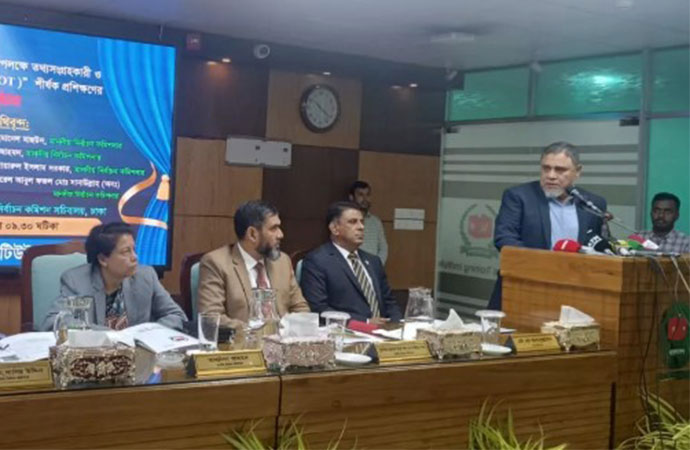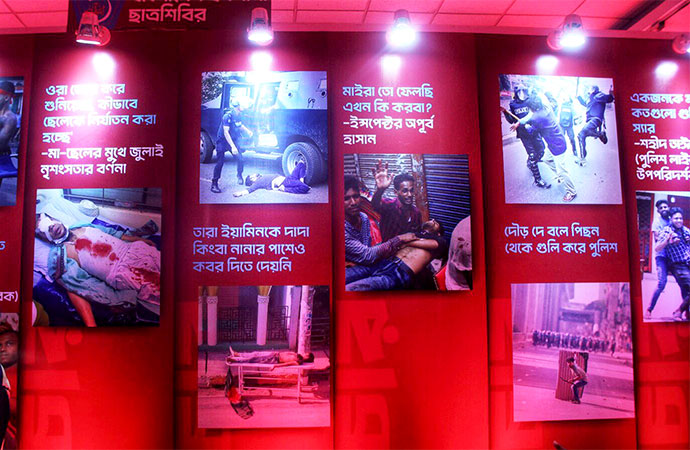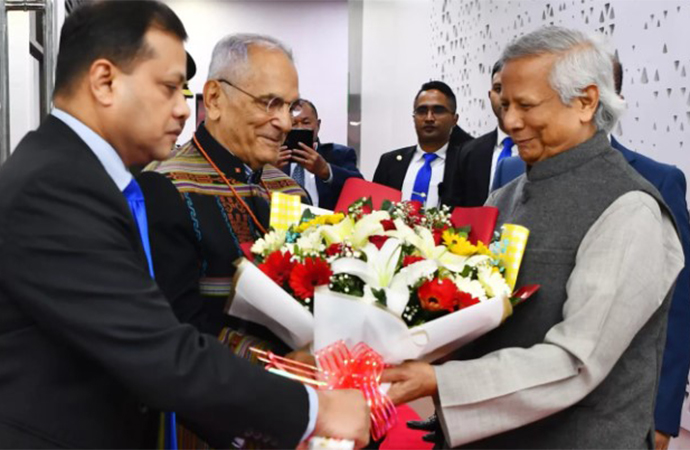Essays

Dr Firdausi Qadri. Photo: Collected
Bangladeshi scientist Dr Firdausi Qadri has been conferred with the prestigious Ramon Magsaysay Award for 2021, in recognition of her groundbreaking work in "developing vaccines that have saved millions of lives".
The Ramon Magsaysay Award Foundation's board of trustees cited "her passion and life-long devotion to the scientific profession; her vision of building the human and physical infrastructure that will benefit the coming generation of Bangladeshi scientists, women scientists in particular, and her untiring contributions to vaccine development, advanced biotechnological therapeutics and critical research that has been saving millions of precious lives."
It caps a year for Dr Qadri that saw her life's work finally receiving the recognition it merits, within the general atmosphere in which scientists - particularly those in the field of life sciences - are being valued more and more for the incredible work they do. This of course coincides with the onset of the global pandemic, and is surely no accident.
Dr Qadri has focused her research on enteric diseases, specifically in the areas of immunology, genomics, proteomic technology and diagnostics, and vaccine development. Perhaps her most important intervention will remain the introduction of a new cheap oral cholera vaccine in Bangladesh, as an alternative to Dukoral, which is costly for poor people and cost-ineffective as a public health tool.
In October 2020, Bill Gates described her as a hero for her work in developing the new cheap cholera vaccine, which was done in partnership with the Gates Foundation:
"In 2011, Dr. Qadri and her team at the International Centre for Diarrheal Disease and Research, Bangladesh (icddr,b) led a feasibility study on a newer, more affordable oral cholera vaccine, Shanchol. The study, which was done in partnership with our foundation, showed that the inexpensive vaccine could be an effective tool in stopping the spread of cholera in poor, urban environments, giving people more than 50 percent protection against the disease," Gates wrote.
He went on to write that it helped lead to "a complete change in thinking about how the world could tackle the challenge of cholera."
"You can have very good water, sanitation, education, good homes and people won't have cholera. But until that happens, you need to stop the misery. You need to control the disease," Dr. Qadri was quoted as saying in the piece by Gates, which appeared on his Gates Notes blog. "And the vaccine is a one-stop solution."
In 2012, Qadri was awarded the Fondation Christophe et Rodolphe Mérieux's annual scientific 'Grand Prize', called the "Christophe Mérieux Prize", for her research on infectious enteric diseases.
In 2013, the World Health Organization (WHO) helped to create an oral cholera vaccine stockpile, to contain and prevent outbreaks. Since then, more than 60 million doses have been shipped worldwide. Gavi, the Vaccine Alliance, is supporting countries to use the cholera vaccine to target cholera "hotspots"-areas at highest risk-to prevent outbreaks before they happen, according to Gates.
The UN has previously noted not only Dr Qadri's own work, but also how a large part of her career has been focused on developing leaders in the field of infectious disease research from different disciplines and institutions. She has inspired many young scientists through her teaching and research activities.
"Her penchant for mentoring can be seen in her lab and field sites where aspiring fellows from both local and international universities, join her team as interns and later move on to faculty positions globally," the organisation's High Representative for the Least Developed Countries, Landlocked Developing Countries and the Small Island Developing States (UN-OHRLLS) wrote in a profile of her.
The arrival in 2017 of nearly one million Rohingya refugees from Myanmar into overcrowded camps in Bangladesh raised serious concerns about a cholera epidemic. Working with the government, Dr. Qadri led a vaccination program that has helped prevent an outbreak, through a program that vaccinated 700,000 of the distressed refugees.
"If this vaccination was not carried out, there would be chaotic conditions," Dr. Qadri said of the campaign. "We were able to prevent a major, major epidemic and deaths."
She was also awarded the L'Oréal-UNESCO Award 2020 for her "outstanding work in science to prevent infectious diseases affecting children in developing countries and for promoting early diagnosis and vaccination with global health impact".
And earlier this year, Dr Qadri was one of three Bangladeshis - all women - who were named by Asian Scientist magazine in their list of the "best and brightest 100 Asian scientists."
The Magsaysay is by far the most prestigious of the awards she has received, but it is only fitting for someone whose work is making it possible to believe in a world where the "world's longest-running pandemic," caused by cholera, can be defeated.
Dr Salehin Qadri, former dean of the Faculty of Biological Sciences of Dhaka University and husband of Dr Firdausi Qadri, passed away early Wednesday, Sep 1. He breathed his last around 3am at Universal Medical College Hospital in the capital. He was 73.
Prof Salehin Qadri was a faculty of the Biochemistry department at Dhaka University. The retired professor of Biochemistry and Molecular Biology had taken ill over several days. Tragically, he breathed his last within 24 hours of news breaking that his wife had been conferred with this year's Ramon Magsaysay Award.

























Leave a Comment
Recent Posts
EC will ensure everyone's voti ...
Chief Election Commissioner (CEC) AMM Nasir Uddin on Sunday said the E ...
The Forbidden City: A timeless ...
For foreigners exploring Beijing, the Forbidden City stands as a magni ...
2025: Moin, Mamun elected DCAB president, general se ..
Dhaka's ties with Delhi won’t get stuck on single is ..
Old state, new society
A foreign policy imperative for the year ahead